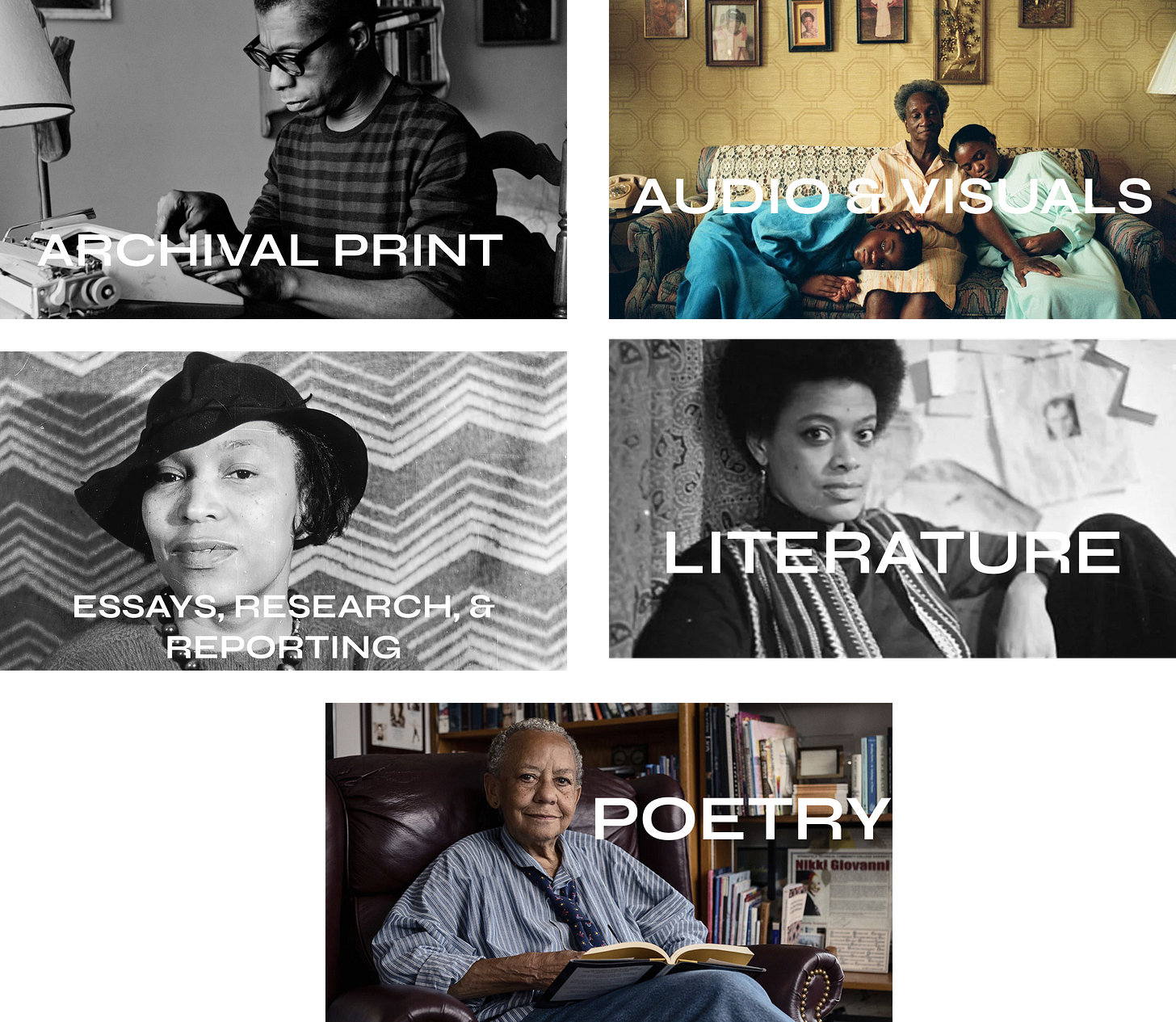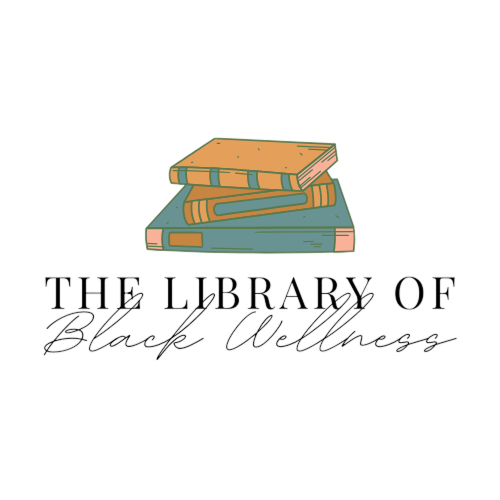Introducing The Library of Black Wellness
Black wellness practices are ancestral, inventive, and deeply communal. This library honors those stories, practices, and cultural knowledge.
At the top of this page, you’ll see a clip of Shug Avery returning to her father’s church in The Color Purple after decades of estrangement. Reverend Avery all but disowned his daughter for being a traveling blues singer and a “loose woman.” After hearing the choir in her father’s church begin singing God Is Trying To Tell You Something, Shug picks up the tune and walks toward the church, bringing her community of Blues musicians and early-Sunday morning spectators. Shug opens the church doors and stands before her father in a moment of praise and worship, where their worlds and communities merge. They lock eyes and she runs to embrace him, whispering in his ear, “See Daddy? Sinners have soul, too.”
I chose this moment to welcome you into The Library of Black Wellness because it captures the essence of this project: reconciliation, love, and healing, and how those things often happen most profoundly in community.
I craved a place where our cultural memory, lived practices, and artistic expression could sit side by side because they belong together. It comes from watching pieces of our stories, our wisdom, and our art scattered across time and platforms. Some of it I’ve seen preserved in books, such as when Baby Suggs gathered Black folks in a clearing in the woods and told them to love the skin white people hated in a radical act of communal healing. Some live only in my memory, like the warm late spring day I went out into the country with my great-grandmother as a child to pick kale from her best friend’s garden. And some are currently hidden in archives that most people will never see.
The Library of Black Wellness is my way of gathering them. It’s a growing collection of books, personal essays, videos, research, and other creative works that have helped Black people survive, grieve, love, heal, and thrive across generations. Here, you’ll find Audre Lorde alongside herbalist Emma Dupree, contemporary essays beside research papers, and podcasts next to YouTube videos of our elders discussing what it means to be well—all threads in the same tapestry.
Many of the works in this archive aren’t typically shelved under “wellness.” But read closely, and you’ll find rich narratives of care, healing, and survival. Toni Morrison’s Sula is about friendship, betrayal, and autonomy, but it also shows how Black women live through grief and shape each other’s healing. Whether in essays or poetry, Audre Lorde’s writing reveals how self-care is political and how community care is liberatory. Parable of the Sower is a visionary exploration of resilience amid chaos and the radical necessity of building care networks that nurture healing and collective strength.
Nearly every work in this library returns to the collective. Black wellness has never been only an individual pursuit. It’s something we’ve always done in relationship to one another. That’s why public submissions about Black wellness across the diaspora are vital to this Library’s future—I can’t do this alone and don’t want to.
The Library of Black Wellness is a space to remember what we already know. At its core, this library exists to honor and preserve the traditions, strategies, and insights Black people have used to heal, protect, and sustain ourselves across generations. By collecting and celebrating these works, we safeguard ancestral wisdom and help build futures where rest, resistance, and joy are our birthright.
I hope you’ll wander through, share what you find, and see yourself reflected here. I hope you remember that we are our own best thing.




